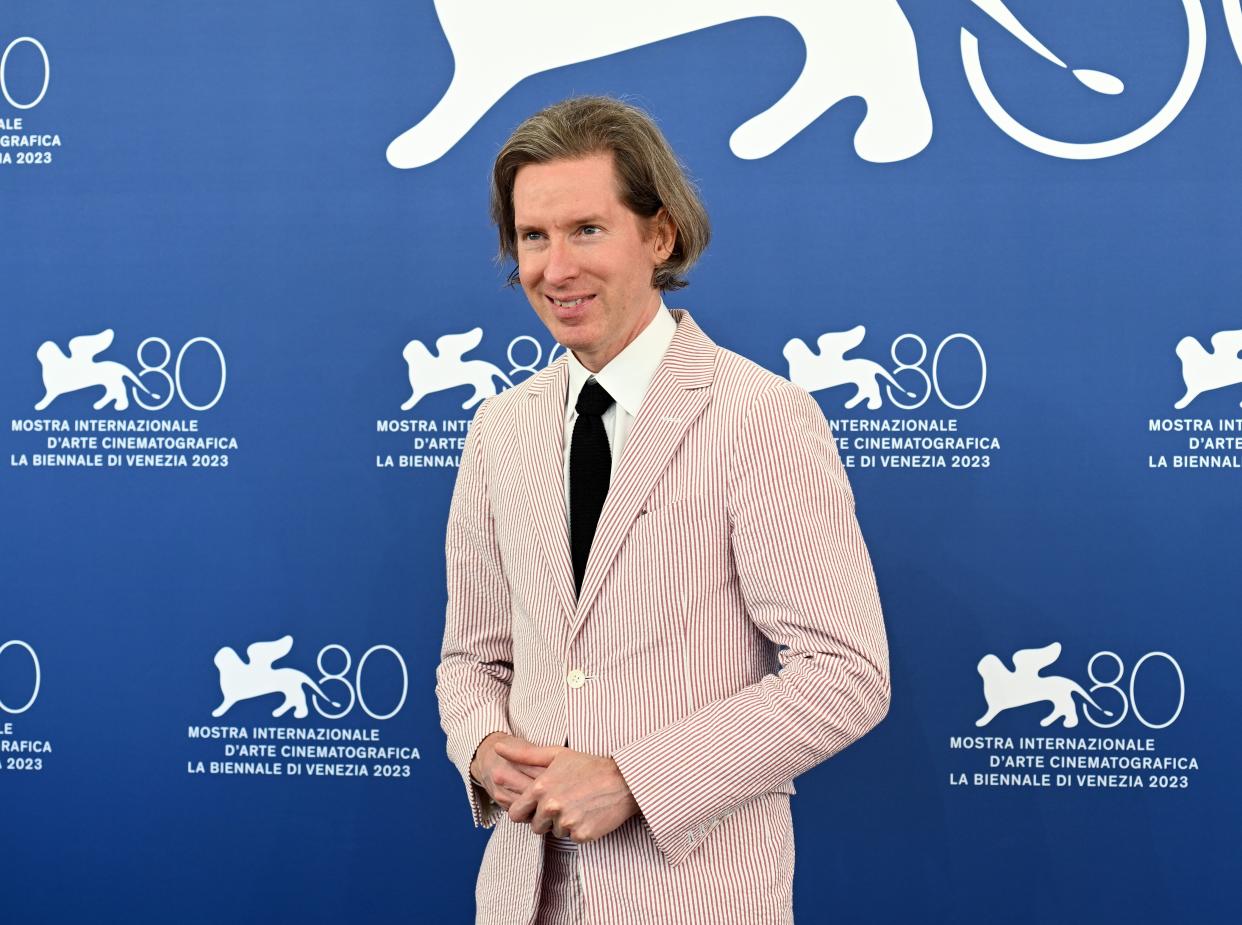Wes Anderson Wins First-Ever Oscar with Live Action Short ‘The Wonderful Story of Henry Sugar’

- Oops!Something went wrong.Please try again later.
- Oops!Something went wrong.Please try again later.
- Oops!Something went wrong.Please try again later.
After eight nominations for six different films he has made, director Wes Anderson has finally won his first Oscar.
Receiving the Academy Award for Best Live Action Short for his adaptation of Roald Dahl’s “The Wonderful Story of Henry Sugar” seems unconventional for both the category, which normally awards emerging filmmakers, and Anderson himself, who was best known till this point for directing features such as “Asteroid City” (which happened to also be in awards contention this season.)
More from IndieWire
His win was over fellow nominees “The After,” from director Misan Harriman, “Invincible,” from director Vincent René-Lortie, “Knight of Fortune,” from director Lasse Lyskjær Noer, and “Red, White and Blue” from director Nazrin Choudhury.
Anderson’s Oscar achievement comes as a bit of a full circle moment for the auteur, coming just over two decades since his career as a professional filmmaker kicked off with the premiere of his short “Bottle Rocket” at the 1993 Sundance Film Festival.
Anderson screened both films back-to-back at a surprise screening during the 2024 edition of Sundance, where he also presented at the awards ceremony, and joked “I don’t believe there was a short film prize at that time [‘Bottle Rocket’ premiered], or any prizes for the short films. Anyway, we certainly didn’t get any.”
Much deeper into his career now, with one of the most recognizable filmmaking styles in the business, “The Wonderful Story of Henry Sugar” still received some of the highest praise his work has ever gotten. In his review, IndieWire film critic David Ehrlich called the short film, “the most visually inventive film that Anderson has made thus far, one whose in-your-face theatricality and manic bricolage of nested subplots are so aggressive that even the recent ‘Asteroid City’ — with its movie about a television program about a play within a play ‘about infinity and I don’t know what else’ construction — feels measured by comparison.”
Another notable aspect of the film is streaming service Netflix being the one to distribute it (its first collaboration with Anderson) as the studio is the rights holder for all of children’s book author Roald Dahl’s work. “While ‘The Wonderful Story of Henry Sugar’ may be, in some respects, the most literal Dahl adaptation you could possibly imagine, the true author of this project is never in doubt,” said Ehrlich of Anderson’s choice to use sections of Dahl’s writing verbatim, but still characteristically make the storytelling his own.
Speaking to IndieWire in February, Anderson described making “The Wonderful Story of Henry Sugar” as “such a different experience because you don’t have the giant weight of the duration of the production. The logistics are so much simpler. It’s such a targeted thing.” He added, “Sometimes I’ve made short films that are genuinely my own thing. They’re basically for fun. Whereas when I’m making a movie movie, I’m putting my whole life into it. And it has a different gravity for me. But every now and then, I’ve done shorts where they’re totally in the same category as the feature films for me. These Roald Dahl ones are more like a movie movie for me, because it’s something I’ve been thinking about for so long.”
Initially, Anderson was only supposed to make “The Wonderful Story of Henry Sugar,” but when the project was coming in under budget, Netflix allowed him to adapt three more short stories by Dahl: “The Swan,” “The Ratcatcher,” and “Poison.” Actors like Benedict Cumberbatch and Ben Kingsley pop up in more than one of the shorts, which creates its own interesting effect on the audience. “I thought that maybe we should treat the cast like a theater company,” said Anderson of the filmmaking choice. “All the main people should have at least two roles in any given story. We also recast them in these other shorts. It’s saying, ‘Well, you all understand what we’re doing here. So we don’t have to pretend we’re pretending.’ In fact, the whole thing is about pretending. And if I say he’s young, you’ll accept it. You can see it’s Ben Kingsley.”
Prior to its Oscar win, Anderson could already see a way for his version of the Dahl story to transfer to other mediums. “When we finished ‘Henry Sugar,’ I thought, ‘We could so readily adapt it to be done on stage,’” said the director. “I don’t think you could do it on the stage as fast as we did it. We’d probably expand it. But I’m always afraid of the idea of doing a play because there’s no editing room. You can’t go fix it. It’s going to end, usually, when you start rehearsals. You already know the dates that you’ve got to start your previews and everything. It’s a different kind of rhythm, and it seems like crazy pressure. But it’s the way it’s done. Some time, I have to do it.”
And if Netflix wants Anderson to make more shorts out of Dahl’s work? “I’ll be eager to show up,” he said.
Best of IndieWire
2023 Emmy Predictions: Who Will Win at the Primetime Emmy Awards?
2023 Emmy Predictions: Outstanding Documentary or Nonfiction Special
2023 Emmy Predictions: Outstanding Documentary or Nonfiction Series
Sign up for Indiewire's Newsletter. For the latest news, follow us on Facebook, Twitter, and Instagram.

